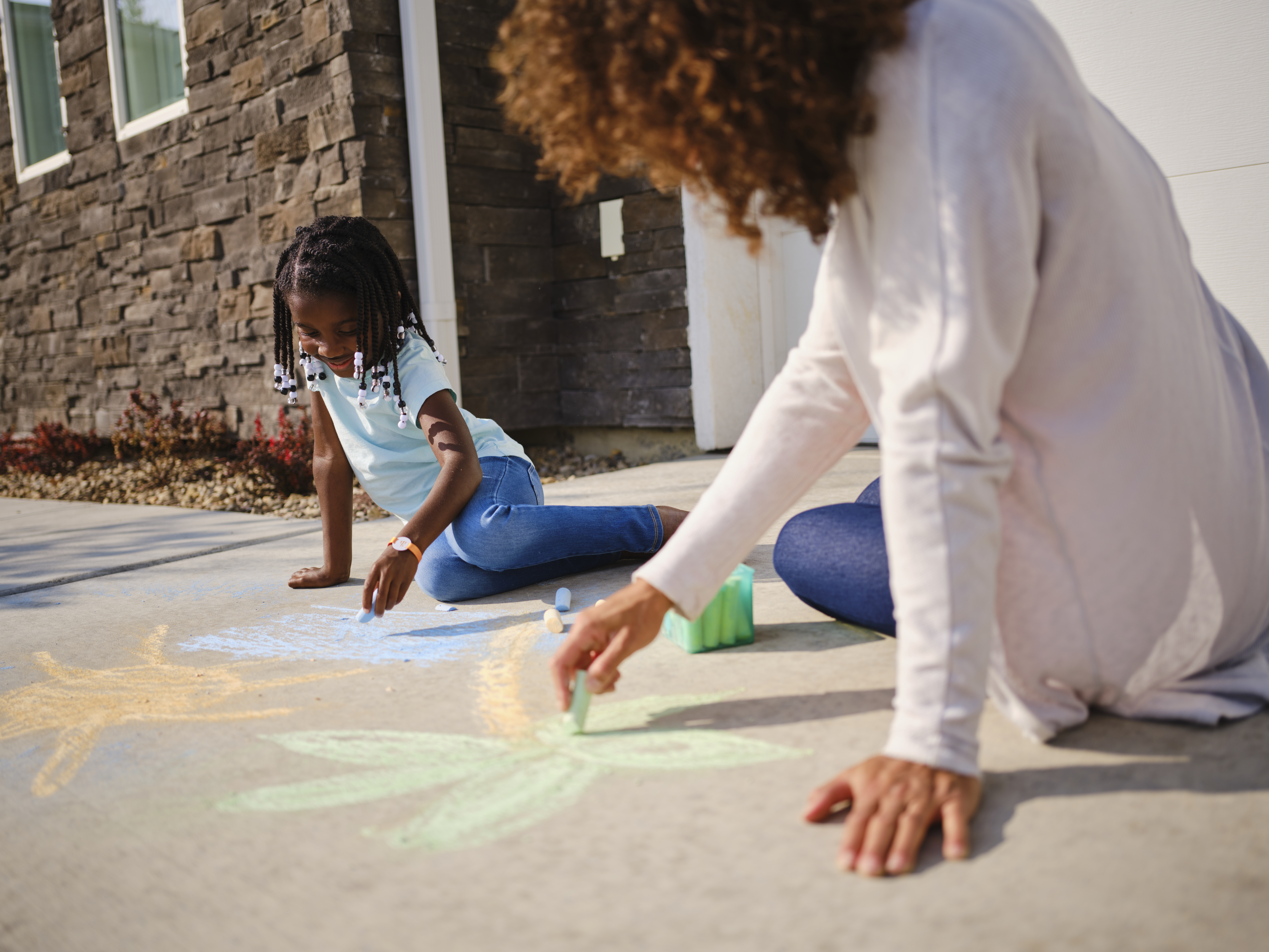By Sheila Dickinson
As a children’s librarian putting together story times for young kids, I reinforce language skills and learning by singing songs with my young audience, talking with them, playing together, writing, and of course reading with them. My colleagues and I love to share books, music, musical instruments, chalk for sidewalks, coloring pages, puppets, flannel boards, and toys at the library.
Bringing your child to story time at your local library is a fantastic way to connect, have fun together, and help your child develop. But your home is also already full of pre-literacy and early literacy tools. And you may know some tricks to engage with your kids that you didn’t realize were pre-literacy activities! This post will share some tips for bringing the library experience home and keeping the learning (and fun) going.
You already have the makings of your own DIY literacy toolkit at home (whether you know it or not), ready to draw on anytime to encourage and support your early learner. You just have to use it. Here are the crucial tools in your kit, plus advice and inspiration for putting them to use:
Your mouth. Talking with your child will help them learn oral language and the give and take of conversation. Even babbling with you is conversation. Use costume props to tell them a story. Make funny noises. Wear a fake moustache and a silly hat.
Learn more: Follow these links to read more about the brain-building power of talk and parental responsiveness, as well as the importance of conversational turns for young kids.
Your voice. Singing develops language skills by slowing down language so kids can hear the different sounds of words. Singing also helps them learn new words and get new information. Basic musical instruments can also help with these skills: a shaker egg, a rattle, a toy drum, a toy whistle. Shake or whistle along to your songs!
Tip: It’s super easy to make your own shaker egg.
Books. Reading together develops vocabulary and comprehension. Reading together nurtures a love of reading and motivates children to want to learn to read. Board books for kids under three years old are so beautiful these days, rich in color and fun!
Discover: See How to Maximize the Benefits of Reading Aloud to Your Kids for simple tips that will help you and your child get the most out of your shared story time. Then check out our curated lists of picture books for various themes and holidays.
Chalk, crayons, markers, pencils, paint. Writing with kids and pointing out words in their daily lives makes them aware that printed letters stand for spoken words. When you write, point out the letters and words you’re using, so they connect the symbols with the sounds they hear. As they’re ready, help them write, or let them invent their own spellings as they learn the sounds of letters and how they form words.
Get inspired: Look through these fun literacy activities to find lots of fun and simple games and activities that incorporate writing.
Toys and imagination. Playing is one of the ways kids learn language and develop literacy skills. Acting stories out helps to put thoughts into words and helps kids describe what they are doing. Maybe you have a stuffed animal octopus and can act out the “slippery fish” song where the octopus gets eaten by a shark? Maybe you have some dinosaurs that ride boats in the rain puddles? Why are they on boats? Ask that kid; find out why.
Related: Discover how storytelling can help you build joy, connection, and (yes) literacy with young kids with these fun DIY storytelling crafts.
Librarians and libraries are your enthusiastic supporters as you journey toward raising a voracious reader. Parents are a kid’s first and best teacher, and reading begins at birth, or before! We librarians want to support you to make sure your family will use the library your whole lives. So raise your voice and talk, sing, read, draw, write, and play your way to raising a lifelong reader.
Want to find more inspiration for your DIY literacy toolkit? Follow Maya Smart on Pinterest or Facebook for tips, tutorials, and tools to raise your reader the fun way.


